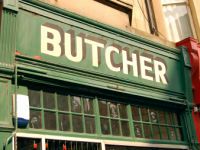Andrew Carter, Chief Executive of Centre for Cities, said:
"While the pandemic has been a tough time for all high streets it has levelled down our more prosperous cities and towns. Despite this, the strength of their wider local economies means they are well placed to recover quickly from the past two years."
"The bigger concern is for economically weaker places – primarily in the North and Midlands – where Covid-19 has actually paused their long-term decline. To help them avoid a wave of high street closures this year the Government must set out how it plans to increase peoples' skills and pay to give them the income needed to sustain a thriving high street. Many of these places are in the so-called Red Wall so there is a political imperative for the Government to act fast, as well as an economic one."



